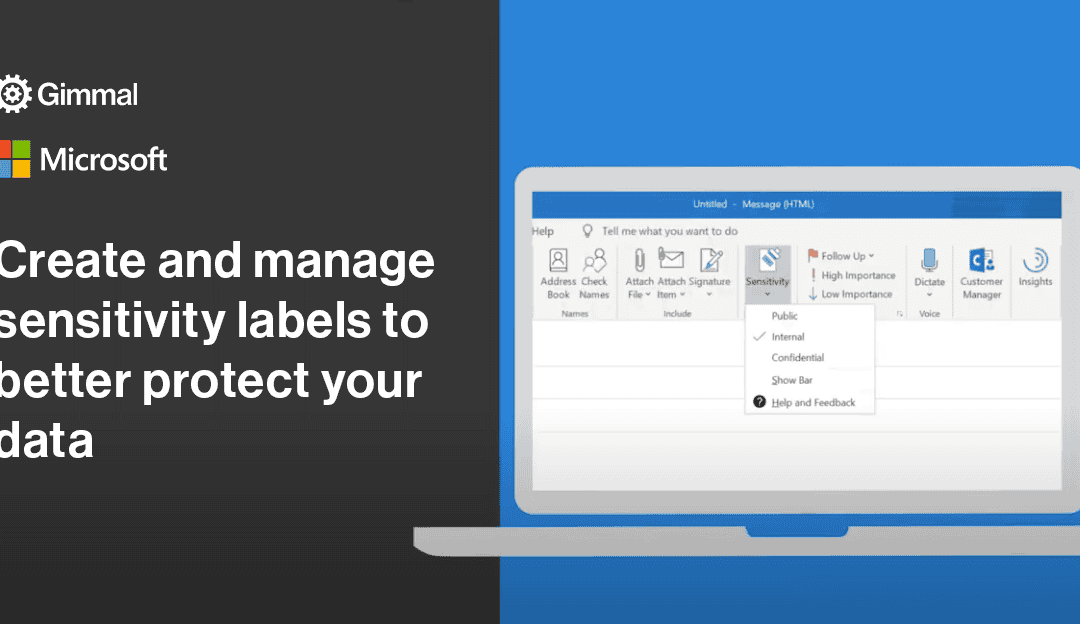Navigating AI and Information Governance Part II – Insights from Gimmal & OfficeLabs

Written by Gimmal Product Marketing
The rapid evolution of AI and data management continues to transform the way organizations operate, especially in the UK and Europe. In a recent conversation between Jason Coggins (Director at Morae) and Mike Nicholas (Operations Director at Office Labs), they explored the real-world challenges organizations face when adopting AI, the persistent issues around data governance, and the importance of people in the technology equation.
The AI Hype vs. Reality
AI is everywhere, but not always in the ways headlines suggest. Many organizations are, in reality, looking for automation and process improvement—often lumped under the banner of “AI”—rather than true artificial intelligence (Check out this article from Zapier highlighting the differences). As Mike points out, “People actually just want some automation but they’re classing it as AI, like a lot of people do at the moment.”
This misalignment can lead to pitfalls:
• Overpromising and underdelivering: Vendors frequently push solutions that worked for some clients, assuming a one-size-fits-all approach. In today’s world, every organization’s needs are unique.
• Security blind spots: Rushing into AI without understanding what data is held, where it resides, or how it’s governed can open organizations up to significant security risks—including inadvertent data exposure.

Data Security: The Elephant in the Server Room
A recurring theme with clients is concern over data security—especially when collaborating with third parties or operating in regulated sectors. As organizations experiment with tools like Copilot or other AI-powered solutions, there’s a real risk of unintentionally exposing sensitive data internally.
“We’re seeing organizations realize they’re exposing all of the data within the organization to every single employee,” Mike observed. For many, a lack of understanding about what data they have—and how it’s secured—halts AI adoption altogether.
Key Takeaway:
Before rolling out AI, organizations must first get to grips with their data: inventory, assess, classify, and secure it. Only then can they safely and effectively leverage new technology.
The Data Deluge and the Need for Cleansing
The shift to cloud storage has removed the physical constraints that once forced organizations to regularly cleanse their data. Now, with virtually unlimited space, data accumulates unchecked—creating silos, increasing costs, and amplifying security risks.
Not only does this make AI adoption trickier, but it also leaves organizations vulnerable to breaches, especially from insiders or disgruntled ex-employees. As Mike notes, “If they’re not cleaning it down on a regular basis, there’s more opportunity for people to find it.”
Why don’t organizations cleanse data?
• It’s easier (and often cheaper) to just buy more storage.
• The cost and complexity of reviewing and deleting historical data can be daunting.
Adoption, Onboarding, and the Human Element
Too often, organizations invest in technology and then underinvest in onboarding and adoption. As Mike puts it, “Adoption isn’t about training; it’s about inclusion and understanding how it will benefit people in their day-to-day work.”
• Onboarding should be ongoing, not a one-off, two-hour training session.
• Success teams must focus on functional outcomes, not just technical delivery.
• User involvement is key: Engage users early and often to ensure solutions address real problems.
Listen to the Audio Podcast
The Underserved Mid-Market
While large enterprises typically have dedicated security and governance teams, mid-market organizations (200–5,000 users) are often left to fend for themselves. Here, IT staff wear multiple hats—security, compliance, support—and often lack the resources or expertise to implement robust data governance.
There’s a huge opportunity (and risk) in this segment:
- Many are unaware of the risks of poor data management until something goes wrong.
- Subject access requests (DSARs) and compliance requirements are increasing, straining already stretched teams.
From Digital Transformation to Data Lifecycle Management
“Digital transformation” is a buzzword with many meanings. For Office Labs, it’s about moving away from unstructured, siloed documents toward a “data-first” mentality:
• Making data reusable and searchable
• Managing document lifecycle Retention, ownership, deletion, and auditability
• Ensuring data integrity and traceability
As organizations digitize, they must also consider how to integrate disparate SaaS systems and manage the outputs—a challenge that’s only growing with the proliferation of cloud tools.
The Value of True Partnership
Both Office Labs and Gimmal emphasize a consultative, partnership-driven approach to solving client challenges:
- Joint discovery and workshops to understand the real problem
- Customizing solutions to fit unique business needs (not just selling “shelfware”)
- Ongoing technical and strategic engagement—not just at renewal time
This stands in contrast to vendors focused solely on license sales, often leaving clients to struggle with adoption and integration.
Information Management-as-a-Service
Given the strains on internal teams, managed information management services are gaining traction. Office Labs, for example, offers ongoing support to maintain information lifecycle management, ensure compliance, and take the burden off overworked IT teams.
Extending 365: When Do You Need More?
Microsoft 365 now includes powerful features for data governance, but for organizations with complex needs—such as managing physical records, deep reporting, or integrating with other systems—add-on solutions like Gimmal come into play.
• 365 covers the basics, but quickly becomes costly and complex for advanced scenarios.
• Gimmal extends functionality: Unified management of digital and physical records, advanced reporting, and compliance automation.
Final Thoughts: Start the Conversation Early
The biggest missed opportunity is failing to bring information management and governance into the conversation early—before new systems are deployed or problems arise.
For mid-market organizations especially, now is the time to invest in robust data governance and records management—before the risks and costs escalate.
Ready to Take Control of Your Data?
If you’re facing challenges around AI readiness, data risk, compliance, or DSARs—Gimmal and OfficeLabs are here to help. Book a discovery session with us to see how we can empower your organization with actionable, efficient, and future-proof information governance.
Get Started or Learn More
Request a demo.
See us at upcoming events: AIM, ARMA, and more—check out our events page for more details.
Related Content

Podcasts
Podcasts Expert Interviews and Best Practices for Modern Information Governance 23 SEPT Navigating AI and Information Governance Part II – Insights from Gimmal & Office Labs Jason Coggins (Gimmal, UK & Europe) and Mike Nicholas (Office Labs) sit down for a...
Navigating AI and Information Governance – Insights from Gimmal & OfficeLabs
Navigating AI and Information Governance – Insights from Gimmal & OfficeLabs Jul 8, 2025 In a recent episode of the Gimmal Podcast, Jason Coggins (Gimmal, UK & Europe) and Graham Bidwell (OfficeLabs) sat down for a deep dive into the fast-evolving worlds of...
Stop Hoarding: Data Retention & Deletion Imperatives for Risk Mitigation
Stop Hoarding: Data Retention & Deletion Imperatives for Risk Mitigation Jun 11, 2025 At Gimmal, our mission is to help organizations effectively manage information, reduce risk, and ensure compliance in an ever-evolving regulatory landscape. In a recent webinar,...
End-to-End Email Records Management: How Gimmal & Colligo Are Automating Compliance for Modern Organizations
End-to-End Email Records Management: How Gimmal & Colligo Are Automating Compliance for Modern Organizations May 7, 2025 Managing records in a modern organization is no easy feat—especially when so much critical business information flows through email. That’s why...

Gimmal Extends Microsoft Purview Information Protection Solution for Enhanced Sensitive Data Labeling and Governance
Thursday, June 20, 2024 – HOUSTON, TX – Gimmal, the market’s only end-to-end information governance platform, announced today the launch of their Microsoft Purview Sensitivity Labels solution to extend and enhance sensitive data classification for unstructured...
